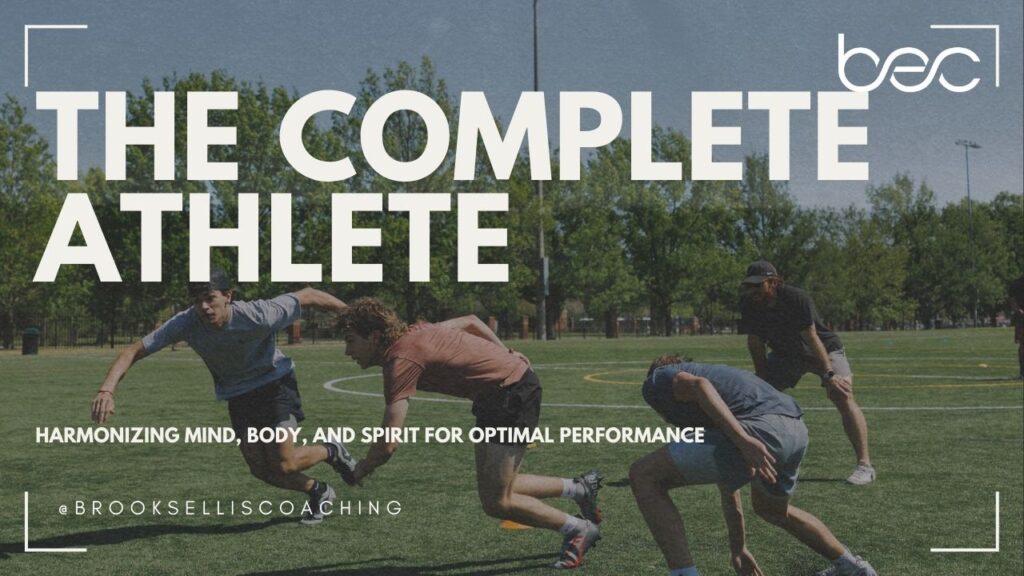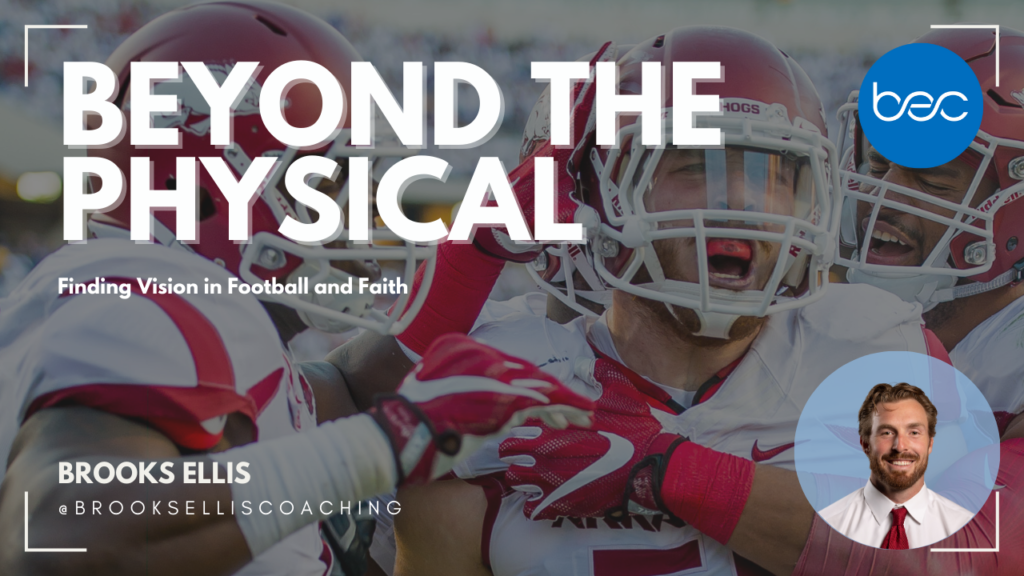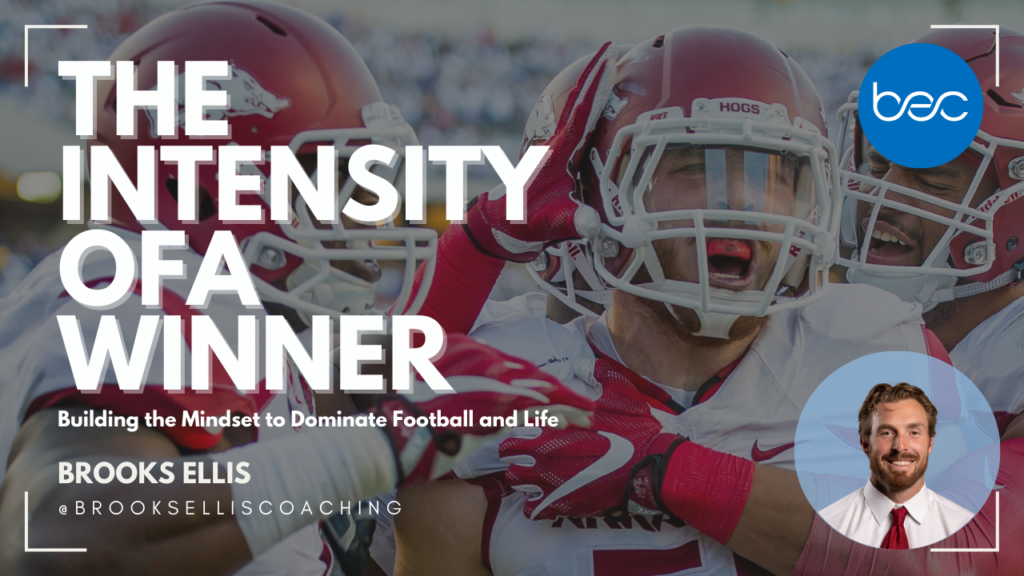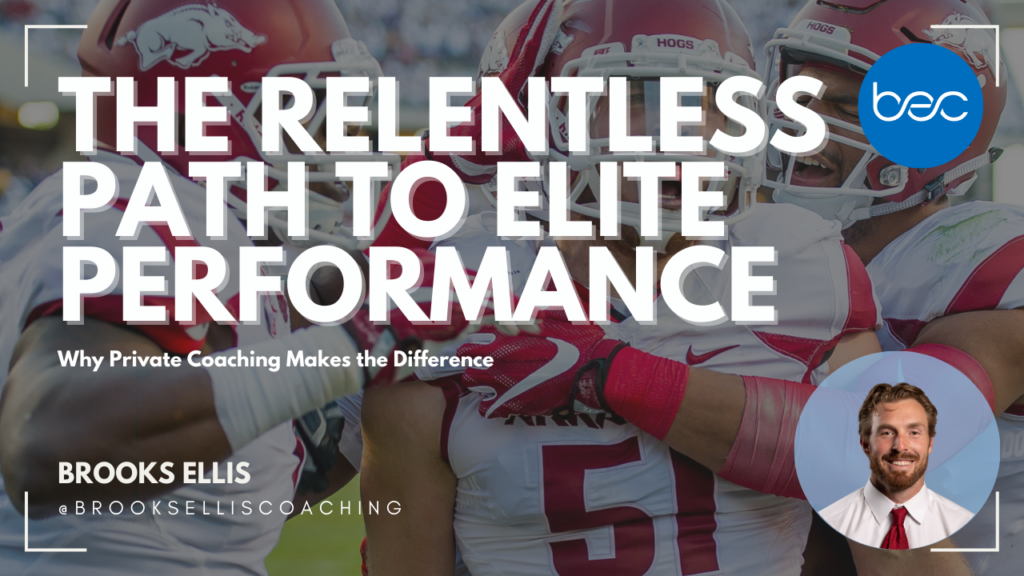Scoring touchdowns, crossing the finish line, hitting a game-winning home run, and winning the championship are the moments athletes sacrifice their time, blood, sweat, and tears for. We play to experience the thrill of winning, the culmination of overcoming a significant challenge that most cannot say they’ve experienced. However, this external display of excellence and culmination of hard work in a win is only one small part of the story of what makes up a COMPLETE athlete.
A COMPLETE athlete exudes excellence not just because of hard work and a bit of hitting the genetic lottery. The complete athlete is an intricate internal synergy of all three body, mind, and spirit working harmoniously to produce the external display of greatness. One without the other creates disharmony and underachieving performance, an athlete’s worst nightmare.
In this article, I’ll discuss the comprehensive elements of what it takes to be a great athlete and why beginning the journey now will pay dividends later on. This journey will help you learn to stay balanced in your training so that you don’t look back on your career wishing you could’ve done more.
Let’s begin with the first aspect of the athlete, which everyone can see most clearly: the body.
BODY
An athlete’s body is the physical tool used to perform the function of their sport and is on display for everyone to see. It’s what you can see: muscles, physique, size, stature, posture, technique, power, gracefulness, flexibility, durability, and endurance, among many other factors. It’s
The body provides the tools, given the correct training, to execute plays in your sport. Running for long distances, jumping to make a catch, using your hands to make the catch, delivering an uppercut during a boxing rout, all of these actions result from proper training executed at the right moment.
While genetics are not the be-all and end-all of your physical makeup, as lifestyle and environment play a much more important role in the physical expression of your genetic expression, genes do set the foundation for what is possible. (1) Some people are lucky enough to hit the genetic lottery, but that does not mean that’s your limit.
As Katy Bowman writes in her book Move Your DNA, the body is built upon a blueprint that works on a sliding scale. When you consistently give your body the proper amount of stress and can adequately adapt, the body will continue to grow and function at a high level. If you sit around all day, eat crappy foods, and spend time around negative people, the blueprint’s worst version of itself will be expressed. Which one do you want?
While today, there are many remedies we can use to temporarily mask the symptoms of an underperforming and over-intoxicated body—painkillers, makeup, liposuction, hair plugs, steroids, cortisone—at the end of the day, your body is the outer expression, and the culmination of the loads placed upon it. (2) An athlete’s prized possession must be taken care of with precision and the utmost care. It’s not a toy, and it doesn’t last long.
How to improve the body
Athletes can use a variety of tools to train their bodies. Not only do they exercise in a concerted effort for physical growth, but they also train their bodies to prepare them for battle. Their training regimen is expertly designed to ensure they can perform the unique duties of their sport. Football players must be ready for quick bursts of all-out strength and power, while baseball players must develop their quick twitch fibers and power to react to a stimulus and create explosive power with extreme accuracy.
The body, composed of atoms, molecules, organelles, cells, tissues, organs, and organ systems, must be trained to withstand increasing amounts of stress. Health without the ability to withstand more and more stress is not health but weakness. The more stress you can handle, the better your body is to embrace the demands of the world and your sport. You train the body to make sure that your body can handle more and more stress. However, if you overstress your body too quickly, it will collapse.
Think about a growing tree. When it’s small, you must support it with a beam and rope to ensure the wind doesn’t blow it over, and the roots can grow dense and secure into the ground. Even then, the biggest trees can undergo extreme amounts of stress and cannot withstand the demands.
Humans and all biological organisms function the same way. If the body experiences too much stress too quickly, it won’t survive. You’ll burn out, either mentally or physically, and you’ll leave the sport. Reminder: this isn’t a knock against your character, and you are not alone. This is just a sign that you haven’t listened to your body’s needs, which is easy to do since athletes are literally trained to override that signal that says you’ve had enough. You must learn how to balance training demands with adequate recovery and support. Otherwise, you’ll end up twisted and broken.
Physical training is one way to develop the body. However, training without the proper nutrients is like trying to throw a baseball without a baseball or practicing how to tackle without somebody to tackle. You have the technique, but you don’t have the ingredients. The body needs the proper ingredients to function properly, or you’re wasting your effort. This is where comprehensive metabolic blood testing comes into play. By looking under the microscope at what’s going on internally, you can understand what ingredients you’re missing and quickly fill in the gaps with food or supplementation.
Take a look at what’s going on underneath the hood by signing up for InnerAthlete. (Disclaimer: the website is currently under heavy construction, but you can still sign up to receive an email that will update you when the genetic tests, app, and new and much-improved website are up and running.)
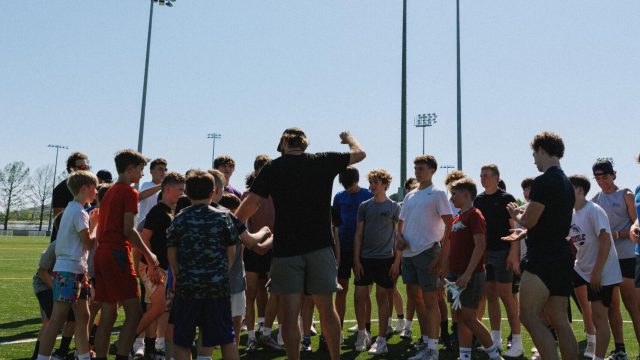
How to train?
Training, first and foremost, requires a commitment to being your best, discipline, self-control, and patience to know that great things, including your best self, don’t happen in a day, week, month, or year. Importantly, the sooner you realize this, the better.
To be disciplined means that despite all the tempting options on the table, such as staying in bed or eating late-night ice cream, you decide to sacrifice those desires to make room for your best self. It means that you place boundaries upon your decisions, and instead of allowing yourself to do whatever you want, you stay committed to your goals during the training process or becoming who you could be.
If you want to learn how to train, you need a coach. Everyone, even governors, CEOs, and movie stars, has a coach. Tom Brady, Michael Jordan, and Babe Ruth had coaches. Without a coach, you will crumble under the overwhelming pressure of having too much information and no way to organize it. If you’re looking for coaching, find a coach. Even better, join Brooks Ellis Coaching.
MIND
The mind encapsulates your ability to learn, respond, think, reconstruct, and visualize. These elements are difficult to pinpoint because they all happen in this mysterious thing we call consciousness.
In sport, the mind has three different functions: to learn the game, shape your understanding of in-game experiences, and execute split-second decisions. (3)
- Learning the game entails knowing the rules, plays, techniques, skills, and strategies and communicating with your teammates if you play a team sport.
- Shaping your understanding of the game is how you learn about the patterns of movement from individual players or the team as a whole, which helps you make more plays and sets you apart. As a linebacker in football, if you can read the play before it even happens, you’ll be in the backfield making tackles for loss more than you’ll be on your side of the ball.
- Execute the correct technique at just the right time, like swinging a bat at the exact moment that lifts a ball over the fence or deciding to throw the ball exactly at the moment when the defender makes the slightest hesitation and the correct technique to get it there, requires a split-second decision. This decision combines the extreme precision of the mind’s stimulus-response system, which sends signals to the body to execute the command.
While you don’t always realize that you’re watching the mind at work, the mind is responsible for the execution of the training, and the slightest deviation can make a massive difference in gameplay. Just like exercise, analyzing and training the mind is critical to ensure you’re not falling behind, and you can be tested on the quality and capability of your mind using a comprehensive platform called S2 Cognition.
S2 is a comprehensive mental analysis platform that helps you identify your mental capacity using a variety of metrics, including spatial awareness, instinctive learning, crystallized intelligence, impulse control, perception speed, and more. (3) NFL QBs like Kirk Cousins swear by this technology to analyze their mind, help them see what they cannot see, and train them to improve their ability to make fine-tuned decisions in the heat of a game.
When thinking about the mind, you must also remember how vital a sound body is to a sound mind. You cannot have one without the other. The gut barrier, for example, is your barrier between the outside world and the inside. When you allow inflammatory foods like sugar, processed foods, or seed oils to enter the gut, the immune response activates and immediately targets the mind, which typically produces brain fog and confusion. While this response is normal, an evolutionary protective mechanism, if you want to be on top of your game as an athlete, even the slightest deviation from optimal functioning can be the difference between a stellar game-winning play, transforming your career, and anti-climatically ending your career with a subpar performance.
Like the body, the mind is the accumulation of the forces you place upon it. Therefore, negative forces such as constant instant gratification and dopamine-releasing activities, like breaking news, scrolling through Instagram, a corrosive family member or friend, or staring at a screen, erode your mental capacity and IQ score instantaneously. (4) Garbage in, garbage out is real.
What you listen to, read, and spend time doing becomes who you are and how you think. Spend time thinking about what thoughts you want to be circulating in your mind and start filling your mind with those books, podcasts, people, and intentional prayers who help you become that person.
Further, there are a plethora of tools to help your mind work at maximal capacity. Breathwork recenters you and brings your brain waves back into a coherent balance with the heart, which is crucial for performance. Supplements like fish oil give you essential ingredients to prevent inflammation and lubricate your neurons. Leafy greens, heavy doses of fatty fish, and olive oil do, too. And last but certainly not least, sleeping deeply and consistently is your best friend. Go to bed early, sleep in a dark, silent, and cold room, make this a habit, and watch your happiness, productivity, emotional resilience, and athletic performance SOAR.
The mind is powerful, but it must be given the right nutrients (information) to thrive.
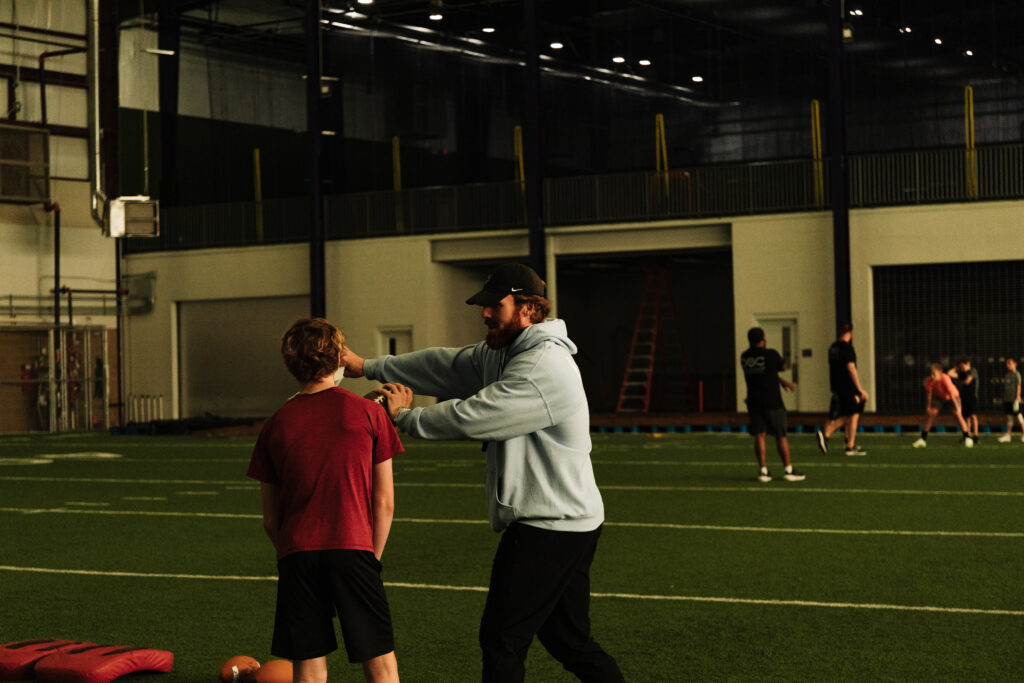
SPIRIT
Spirit can best be defined as your quality of being. What kind of spirit do you embody? One of chaos and pride, unable to listen to the guidance around you or one of generosity, adventure, and faithfulness that your sacrifices will pay off?
It can also relate to your driving force, your aim, and the force connecting your drive to your aim. When you have a high aim, you realize that it’s not about you, it’s about your role in giving back to others what you have been given yourself. So it begs the question, what is your ultimate aim, why is that your ultimate aim, and what tools help you arrive there?
As an athlete, hopefully, you aim to win the game. Why? Because that’s the reason you play the game. What tools help you arrive there? Doing your job, first and foremost, can be your technique, assignment, or responses to the opponent’s moves, but it starts with doing your job. Then, other tools could be making a big play, leading your teammates, etc.
The mind thinks for a purpose, the body moves for a purpose, and the spirit orients your movements or thoughts to direct you toward your purpose. Spirit is the quality of the soul and is the combination of aim and action. It’s a vector with magnitude and direction. When the spirit doesn’t have the right aim, such as wanting all the glory for themself, instead of helping the team win, the mind and body will follow suit. Chances are the end result will not be personal glory but personal isolation and defeat as you aim to satisfy your own personal selfish desires instead of your team’s goals.
While we are individual humans with unique desires and needs, we are social creatures, and we are designed to thrive within a group. God created us to be giving, peaceful, and socially compatible, not selfish and greedy. Before civilization, if this were to occur, the group would kick you out of the clan, and you would be eaten alive by the tiger hiding in the bushes.
The point here is that our aim must benefit the group, and we must sacrifice our desires to meet the group’s needs. Why does a QB take a massive hit to ensure the ball gets into the endzone? Why does an outfielder dive headfirst close to the back wall to make a game-saving play? It’s a sacrificial game; the more sacrifices we make for others, the greater the results.
When you know your aim, you know the sacrifice you have to make. To optimize your spirit, you must first know the right aim and dedicate all of your being to achieving that aim. The mind and body will follow and be synergized to help you achieve it.
Misguided spirit
Overeating ice cream because it makes you feel better and misreading your biological signs to say stop.
- Aim = feel comfortable. Action = Eat tasty foods. Result = get fat, feel fat, feel shameful
OR continue to work a deadbeat job when you know it’s draining your soul.
- Aim = Hope that one-day money will solve your problems. Action = Stay within your realm of comfort even though the job is all but comfortable.
Well-guided spirit
Recognizing that what you eat matters and that healthy foods help you feel good and perform well. It helps you be productive and happy in your interactions.
- Aim = your best self. Action = Eat healthy foods.
Recognizing that the only reason you’re still at your deadbeat job is that you’re chasing a number that only gets higher and you only get more miserable. Therefore, you jump off the train and realize you don’t need as much as you think and that you’re much happier when you follow your heart. You also learn that when you’re happy, you’re more successful because you enjoy what you do, and you have a much greater impact on the world around you when you are taking care of what you need for the sake of others.
- Aim = Listen to your heart. Action = Follow your heart and get uncomfortable for the greater good.

Synergize
When mind, body, and spirit are synergized, with the right aim, information, care, and the ability to continually listen to and follow each command, your performance will skyrocket.
Where do I start?
First, know your aim.
Answer the following journal prompts to find your aim:
- What is my ultimate goal for my life? Year? Week? Day? Moment?
- What do I spend more time thinking about than anyone else?
- What kind of legacy do I want to leave behind?
- How do I want people to remember me?
- What events have occurred in my life that have given me a unique perspective and skillset?
- During which kinds of activities, that are productive in nature, do I find the most joy?
Spend time in prayer, meditation, or quiet silence, asking God about these questions. The answers will arise. Allow the first answers to be sufficient; they’re usually correct.
Then, dedicate your life to fulfilling that aim. Remove anything that prevents you from accomplishing these goals from your routine.
PERSONAL STORY
Throughout my childhood, I listened to anything and everything constantly and watched endless amounts of TV and social media clips. It seemed harmless as I was still productive. However, I always felt this sense that I needed more and that what I had wasn’t sufficient. I didn’t know why. I also realized that I complained about my life position and compared myself to others. I wanted more and more money, thinking that would make me happy, and I was sincerely impatient, making a slew of rash decisions that didn’t make a lot of sense looking back, but looked. I noticed these things but always felt this perspective would change once I found success.
After years of fighting this battle, by the grace of God, I finally said enough was enough, and God encouraged me and gave me the strength to quit drinking. Soon after, with confidence in my self-control and knowing how much better life is when I don’t do things that trip me up, I stopped doing the activities that drained me, and I started spending more time in the Bible and with God.
Over the course of many months, incredulously, my mind shifted from being overwhelmed with stress and feeling resentful about my life to being truly grateful for every moment and every day. Those negative thoughts have slowly been replaced with, “Be with God,” “Thank you, God,” and “How wonderful.” I am constantly asking God to teach me about his infinite wisdom, and every day, He uncovers little by little, which allows me to let go of what I want for myself and instead do what I need to do for His glory. Further, supernatural thoughts and ideas that help me be a better person, coach, and professional arise constantly, and my previous habit of attacking myself for not being good enough is all but gone.
You are what you spend time doing and thinking about. If it’s garbage, the results will be garbage. If it’s God, the results will be infinitely beautiful.
REMINDER
Each facet of the athlete incorporates the other facets. It’s like drawing a cube on a piece of paper to take an idea from CS Lewis. How do you draw a cube? Well, you start with a line and then numerous lines. The lines then make squares that connect to make a cube. The elements of the cube are the lines and the squares, while the whole picture is the cube. You cannot have the cube without the lines or squares, nor are the squares the cubes themselves. They are interconnected and inseparable when creating the whole object.
Same thing with the whole athlete. You cannot have an athlete who cannot think or has the wrong aim. If he doesn’t want to win above all else, winning is off the table, and he won’t be an athlete much longer.
CONCLUSION
The athlete is more than just a genetic lottery winner and more than just a physical specimen. To succeed in sport, one must have proper aim, nutrients, and information, devoid of destructive information, that optimizes all three aspects of the athlete—mind, body, and spirit.
When these three aspects are synergized, where the body nourishes the mind, the mind helps develop the spirit, the body becomes a temple that expresses the internal flourishing of the spirit, and the athlete becomes the greatest version of themselves.
This is the athlete. To begin this journey sooner rather than later will be your greatest investment.
References
- Srinivasan TM. Genetics, epigenetics, and pregenetics. Int J Yoga. 2011 Jul;4(2):47-8. doi: 10.4103/0973-6131.85484. PMID: 22022121; PMCID: PMC3193653.
- Card, A. J. (2017). Moving Beyond the WHO Definition of Health: A New Perspective for an Aging World and the Emerging Era of Value-Based Care. World Medical & Health Policy, 9(1), 127-137. https://doi.org/10.1002/wmh3.221
- https://www.s2cognition.com/how-s2-works
- https://blogs.iu.edu/sciu/2023/05/20/brain-drain-smartphones/#:~:text=Behavioral%20scientists%20recently%20found%20that,to%20part%20of%20your%20intelligence.


